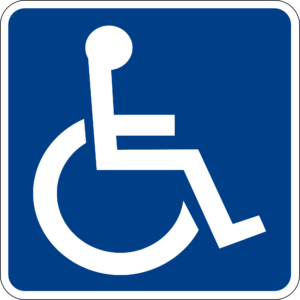 Choosing to disclose a disability at work comes with a host of possible outcomes. Many who have hidden disabilities strive to keep them that way, fearing they’ll be treated differently if their co-workers are aware. Accommodations are required under the law but may be viewed as a burden by the employer and even though mandated, often are denied. If you find yourself in this position, what should you do? Liz Schumer for the New York Times thoughtfully explores this topic in her article, How to Disclose a Disability to Your Employer (and Whether You Should)
Choosing to disclose a disability at work comes with a host of possible outcomes. Many who have hidden disabilities strive to keep them that way, fearing they’ll be treated differently if their co-workers are aware. Accommodations are required under the law but may be viewed as a burden by the employer and even though mandated, often are denied. If you find yourself in this position, what should you do? Liz Schumer for the New York Times thoughtfully explores this topic in her article, How to Disclose a Disability to Your Employer (and Whether You Should)
Tag: co-workers
Money Talk
 Many of us shy away from discussing our salaries with others. Employers often forbid this practice, although it’s illegal to do so in the private sector. Another reason we may feel uncomfortable talking about money is that we see it as self-worth, not just an amount we are paid to do a job. Tim Herrera for the New York Times, Smarter Living, encourages these discussions as a way to expose pay discrepancies.
Many of us shy away from discussing our salaries with others. Employers often forbid this practice, although it’s illegal to do so in the private sector. Another reason we may feel uncomfortable talking about money is that we see it as self-worth, not just an amount we are paid to do a job. Tim Herrera for the New York Times, Smarter Living, encourages these discussions as a way to expose pay discrepancies.
“I can remember in the not-too-distant past having been discouraged from talking about wages,” Ms. Cornell said. She added that years ago she learned through a conversation about salaries with a male co-worker that he was making about $50,000 more than her, and that there was “no objective justification for the disparity in pay, but he had been in the position for a longer period of time.”
Herrera encourages co-workers to not be afraid of these conversations but to approach them with genuine interest and the idea of mutual benefit.
Why You Should Tell Your Co-Workers How Much Money You Make
Having an “Office Space” Moment?
 Pop-culture has led us to believe that we are entitled to well paying, enjoyable jobs in a fun office environment with quirky co-workers and a boss who appreciates our every talent. What happens when our jobs are far from this fairytale? Turns out, we can take steps to make our employment work for us and possibly even make ourselves better humans in the process. nyti.ms/1o5f9N8
Pop-culture has led us to believe that we are entitled to well paying, enjoyable jobs in a fun office environment with quirky co-workers and a boss who appreciates our every talent. What happens when our jobs are far from this fairytale? Turns out, we can take steps to make our employment work for us and possibly even make ourselves better humans in the process. nyti.ms/1o5f9N8